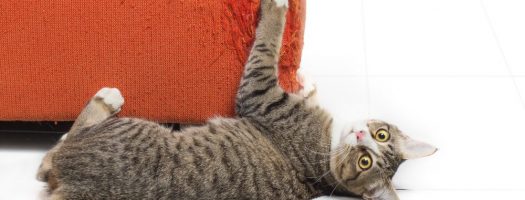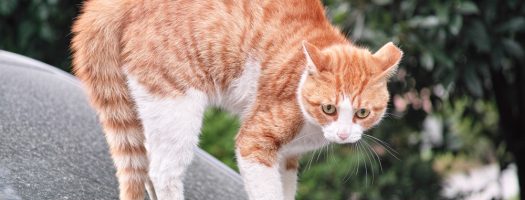The Truth About Fading Kitten Syndrome — Causes, Cures, Treatment and Prevention
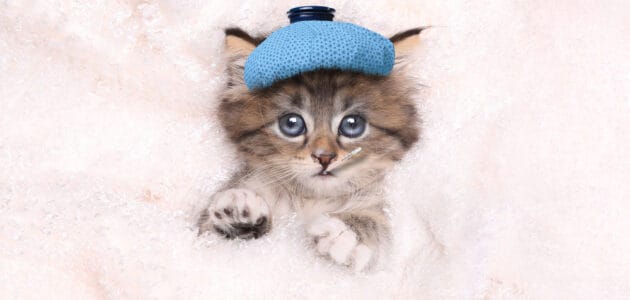
Whether you’re fostering a feline litter, rescuing a stray kitten or adopting one into your family, it’s important that you inform yourself on how to take good care of your kittens. This starts with learning about fading kitten syndrome (FKS) and how to identify it.
The dreaded fading kitten syndrome does not have to be a fatal disease — as long as you can identify and treat it. Doing so ensures that your kittens get the care that they need, giving them a better chance of living a long and healthy life.
What Is Fading Kitten Syndrome?
Although fading kitten syndrome is often referred to as a disease, it hasn’t been identified as such. This is because kittens are diagnosed with FKS when they exhibit a collection of signs and symptoms, which can vary greatly, instead of testing positive for an actual disease. Nonetheless, FKS is very real and can result in the imminent passing of your cherished kittens unless you successfully prevent these signs or quickly treat them.
Kittens are suspected of having fading kitten syndrome when they show a rapid decline in their overall health. This tends to occur during the neonatal portion of a kitten’s life (0-5 weeks of age), when they are the most vulnerable to hypothermia, dehydration, infection and more. In some cases, kittens pass away before we have the chance to identify their health issues, as one of the first signs of fading kitten syndrome can be sudden death.
How Common Is Fading Kitten Syndrome?
Fading kitten syndrome is very common in kittens, especially in newborns. It’s estimated that 15-27% of kittens will pass away from FKS before making it past their ninth week of life. Once they live past nine weeks, their chances of surviving to adulthood soar. However, this isn’t to say that a kitten is marked as safe as soon as they reach 10 weeks of age, but rather that they are statistically more likely to survive.
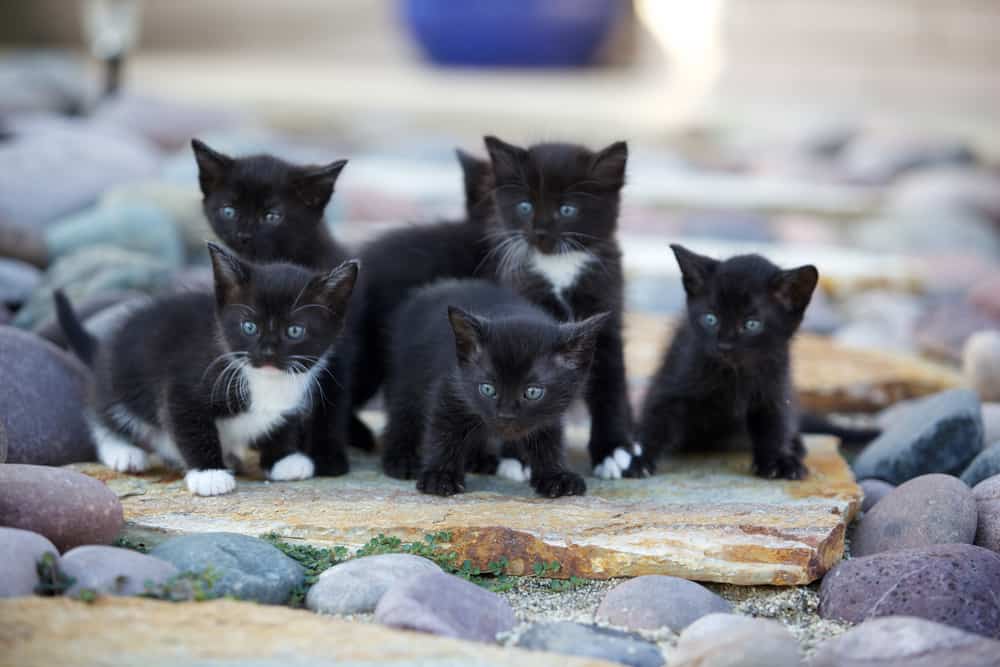
The Most Common Signs & Symptoms of Fading Kitten Syndrome
It’s much easier to identify FKS in a young kitty when you have a litter of healthy kittens to compare them to. This is because healthy kittens tend to huddle together for warmth, whereas a sick kitten will likely isolate themselves from their siblings.
This is also true since the runt of the litter tends to be the most at risk for fading kitten syndrome, and if you have adopted or found a lonesome kitten, you do not have the rest of the litter to compare it to. Should this be the case, pay extra attention to the milestones of a healthy kitten, and seek expert care if your kitty is falling short of its growth spurts and cycles.
Whether you’re caring for a single kitten or a litter, however, keep an eye out for the warning signs listed below and remember, if your kitten is experiencing these — time is of the essence; you should get them to the veterinarian as soon as possible.
Signs in the Kitten’s Physique
Keep an eye out for these signs in your kitten’s body and build.
- The kitten feels cold and skinny to the touch, compared to a healthy kitten’s warm and slightly chubby physique.
- The kitten is very small for his age.
- The kitten has abdominal distention.
- The kitten has a visible congenital malformation.
- The kitten isn’t growing and seems weak and lethargic.
Physical Symptoms
Watch for these symptoms of illness in your kitten, which can be a sign of something serious.
- The kitten is sneezing or wheezing.
- The kitten’s eyes have discharge in them.
- The kitten is experiencing labored breathing.
- The kitten is expelling pale, grey or yellow mucous membranes.
Behavioral Signs
These behaviors can be a symptom of fading kitten syndrome.
- The kitten has low energy and doesn’t want to play.
- The kitten isn’t going to the bathroom after every meal.
- The kitten has trouble nursing or drinking from a bottle.
Other Warning Signs
These external signs can also be a hint that the kitten may experience fading kitten syndrome.
- The kitten has been abandoned by his mother.
- The kitten is the run of the litter.
Causes of Fading Kitten Syndrome
There are many reasons why your kitten may be experiencing a decline in her health. But the more you know about your kitty’s background, the easier it will be to identify the root of the problem. Below are some of the most common reasons a kitten will experience fading kitten syndrome.
Prenatal Complications
Some kittens are born with fading kitten syndrome due to prenatal complications. Just like in human pregnancies, a kitten depends on its mother for nutrients. If the mama cat, which is called a queen, does not receive sufficient nutrients throughout her pregnancy, her kittens may be born stillborn or sickly.
This may also be the case if the queen has suffered a stressful pregnancy or has become ill and/or infected during the prenatal stage. Knowing this, it isn’t surprising to find out that stray cats are more likely to give birth to kittens with FKS, as they are less likely to receive medical attention should something go wrong.
Very Young or Old Mothers
The younger the queen, the more complications there will be. This is especially true if the mama cat is having her first-ever litter, as this litter is more likely to encounter high kitten mortality rates. Should the queen be nearing her senior years, however, her litter could encounter a high number of congenital defects, which can lead to FKS.
Large Litters
A high number of kittens per litter may also be a cause for concern, due to overcrowding. Kittens may not have enough room in the womb to grow big and strong, causing them to become the runt of the litter. This may lead to them having a hard time keeping up with their siblings when it comes to feedings, which can hinder their growth.
Abandonment
Another very common cause of fading kitten syndrome is abandonment. If the queen notices that there is something wrong with her kitten, she may choose to leave it behind and focus on her healthier offspring. The longer a kitten goes without being fed, the less likely he is to flourish, which makes him susceptible to FKS.
Dystocia
Dystocia is the term used to describe a painful and difficult birth, which isn’t too uncommon amongst queens, especially ones of the very young and old variety. Should a queen experience dystocia, it can lead to her kittens getting injured, causing them to get left behind or infected should a wound be present.
Neonatal Isoerythrolysis
Neonatal isoerythrolysis (NI) is also to blame for fading kitten syndrome. This occurs when a kitten’s blood type is not compatible with his mother’s. This doesn’t cause the kitten to perish in the womb, but rather to pass away after drinking his mother’s first milk, which is rich in antibodies. It is these antibodies that attack the kitten’s red blood cells, causing them to become anemic. Sadly, this leads to a kitten’s quick and sudden passing.
Abnormally Low Birth Weight
Although it isn’t uncommon for the runt of the litter to grow up big and strong, these tiny furballs are often at risk of being born with FKS. This is due to some of the kitten’s vital organs, like their lungs, not being mature enough to survive past the first few days of life.
The runt of the litter may also suffer due to having difficulties nursing. Their bigger and stronger siblings may push them out of the way — without their caretaker noticing — preventing them from getting enough nutrients.
Hypothermia
To flourish, a kitten must be kept safe and warm. Having a reasonable body temperature will ensure that they can nurse and digest their food while also passing healthy bowel movements. If a kitten is abandoned and left out in the cold for too long, they may suffer from FKS.
Malnutrition
Naturally, a queen will do whatever she can to ensure that her kittens are receiving enough milk and nutrients. However, there are times when a mother does not produce enough milk or simply can no longer tend to her kittens. If you adopt a kitten, you must bottle feed it using a nutritious formula, as failing to do so can result in malnutrition.
Dehydration
Young kittens are often prone to dehydration due to having immature kidney functions and little to no compensatory fluids in the body. Diarrhea and vomiting can quickly exhaust a kitten’s fluid reservoir, causing them to become dehydrated and weak. Your kittens should be going to the bathroom after every feeding. If they’re not, this is a sign that dehydration has occurred.
Typically, only a few kittens in each litter (if any) will experience FKS. However, there are times when an entire litter can succumb to this disease due to viral and bacterial infections, which can be contagious. This tragedy is much more common amongst feral cats — especially when the queens themselves are infected. Although the kittens are protected by their mother’s antibodies for the first 3-4 weeks of their lives, this protection fades, leaving them defenseless, until they can form their own antibodies a few weeks later. Luckily, caretakers who suspect their kittens of having a viral or bacterial infection can treat them with antibiotics before it’s too late.
Fleas or Parasites
Fleas and parasites can be deadly to pets of all shapes and sizes — including kittens. An infestation can quickly affect the health and well-being of a kitten and can even lead to anemia or a life-threatening infection.
How to Treat Fading Kitten Syndrome
The term fading kitten syndrome is used to describe dozens of ailments pertaining to neonatal kittens. And so, unfortunately, there isn’t a one-cure-fits-all. If you suspect that your kitten could be suffering from FKS, it’s crucial that you call your veterinarian and set up an appointment. Then, your vet will examine your kitten and treat it as they see fit. To determine the root cause, tests will be conducted so that the appropriate course of action can take place.
How to Prevent Fading Kitten Syndrome
Although there is no guaranteed way to prevent fading kitten syndrome, there are some things you can do to give your kitten the best chance possible.
- Ensure that your kitten is well-nourished and hydrated.
- Keep your kitten comfortable and warm.
- If your cat is pregnant, bring her to the vet to ensure that she is healthy. A healthy mom has a better chance of delivering a healthy litter.
- Monitor the growth of each kitten, taking their temperatures to determine if they are healthy.
Unfortunately, there isn’t a whole lot you can do to prevent fading kitten syndrome. But by educating yourself on this diverse disease, you can learn to spot the signs and identify FKS before your kitten’s health deteriorates.
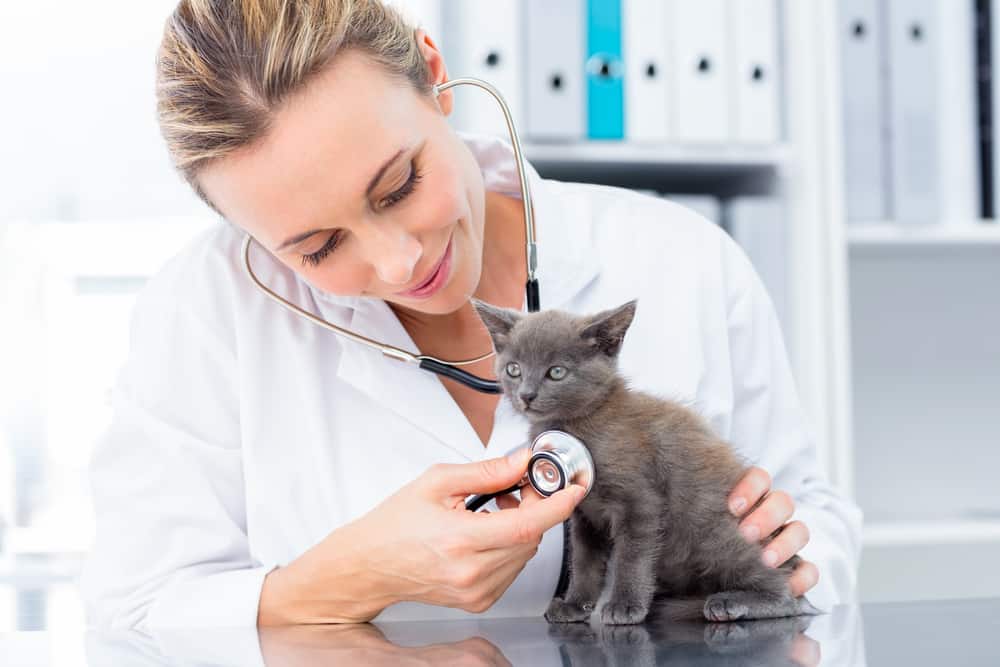
Final Notes
We want what’s best for our animals which is why we do everything we can to keep them safe, sound and happy. Sadly, there is only so much we can do when fate plays a hand in the outcome. If your kitten is feeling sick, give them lots of love and affection until they can receive medical help — the sooner the better. We wish you and your kittens the best of luck!


